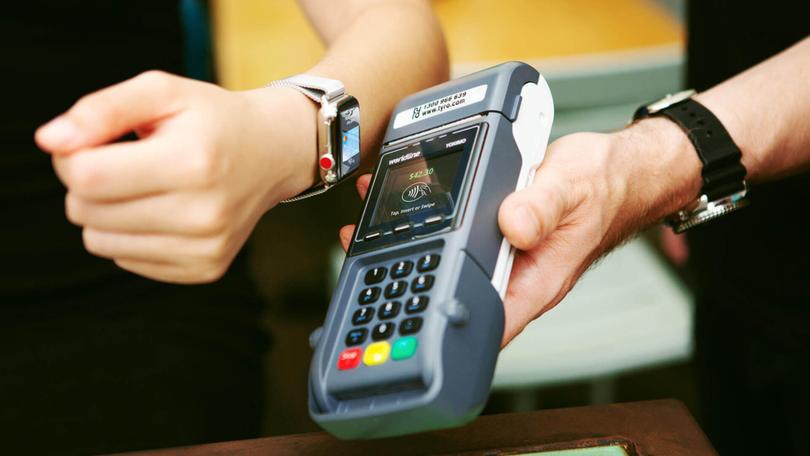Annual inflation ticks higher to 3.8 per cent but RBA could hold fire on interest rate rise
Borrowers have been told a rate hike at the Reserve Bank’s meeting next week is less likely than previously feared despite “uncomfortable” inflation numbers.

Borrowers have been told a rate hike at the Reserve Bank’s meeting next week is less likely than previously feared despite “uncomfortable” inflation numbers.
Consumer prices lifted 3.8 per cent in the year to June, slightly faster than the inflation rate posted in March.
That was the first rise since December 2022.
Sign up to The Nightly's newsletters.
Get the first look at the digital newspaper, curated daily stories and breaking headlines delivered to your inbox.
By continuing you agree to our Terms and Privacy Policy.The hardest hit items were housing and food. Fruit and vegetables rose 6.3 per cent in the quarter while rents were up 2 per cent, Australian Bureau of Statistics data showed.
Perth had the hottest inflation in the country, with prices rising 2.1 per cent in just three months as the temporary impact of the State Government’s electricity relief package left the system.
But the RBA’s preferred measure stripping out volatile items — trimmed mean — fell marginally to 3.9 per cent.
Traders rapidly ditched their bets on an August interest rate rise with Bloomberg data suggesting the chance of a hike was negligible. Share markets also jumped on the news with the ASX200 lifting 1.8 per cent to be 8092.3.
Investment bank UBS walked back its prediction of a rate hike at the next RBA meeting.
Yet some commentators believe it’s too early to declare victory.
Judo Bank chief economics adviser Warren Hogan said the next move on rates would likely be a hike, but not necessarily at the RBA’s meeting next week. Meanwhile, ING head of research Robert Carnell reckoned an August rise was still likely.
Canstar financial services executive Steve Mickenbecker argued the lack of progress on inflation was “disturbing”. Similar figures in the next quarterly update would “almost demand a cash rate increase”, Mr Mickenbecker said.
A little more optimistic was Betashares chief economist David Bassanese, labelling the result “better than feared”. He too warned not to pop the champagne bottles just yet, however.
“Australia retains a sticky inflation problem and interest rate increases at some stage this year can still not yet be confidently ruled out,” he said.
A big factor could be how households respond to tax cuts and cost of living support which started to flow on 1 July, with Moody’s Analytics economist Harry Murphy Cruise saying data showed consumers were more confident.
“If that exuberance converts to spending, the RBA may be forced into action,” he said.
But Mr Murphy Cruise said the RBA appeared reluctant to hike and “progress is being made” on the inflation fight.
There were plenty of economists telling punters to “breathe a sigh of relief”, including Deloitte, who again warned another hike would tempt a recession.
Treasurer Jim Chalmers may have also breathed a sigh of relief, with the Federal Government under hot political pressure over cost of living ahead of an election expected in the next year.
He said the numbers were unwelcome but unsurprising.
“We know that the inflation fight is far from over,” he said.
“We’ve seen around the world that inflation can zig and zag on the way down — and, because Australia’s inflation peaked lower and later than in many countries, we’re seeing that trend here now.”
Shadow Treasurer Angus Taylor pounced on the figures to say the Government had failed to tame inflation and argued Mr Chalmers was “pressing down the accelerator”.
“Australia is at the back of the pack when it comes to tackling inflation,” he said.
“Our inflation has been consistently higher than every major advanced economy.”
Australian inflation hit more than 8 per cent in 2022 following an extraordinary outbreak of rising prices following huge emergency stimulus measures in the pandemic.
Much — but not all — of the developed world was similarly hit by rocketing prices.
The RBA was forced to lift interest rates from an emergency low of 0.1 per cent to 4.35 per cent over less than two years, one of the most aggressive hiking cycles in history.
But despite some commentators last year forecasting rate cuts in 2024, a move downwards has failed to materialise.
The central bank has said rising prices must be stopped quickly because longer-lasting inflation could become easily entrenched.
The RBA targets an inflation rate of 2 per cent to 3 per cent, with a higher pace hurting living standards and adding to inequality.
